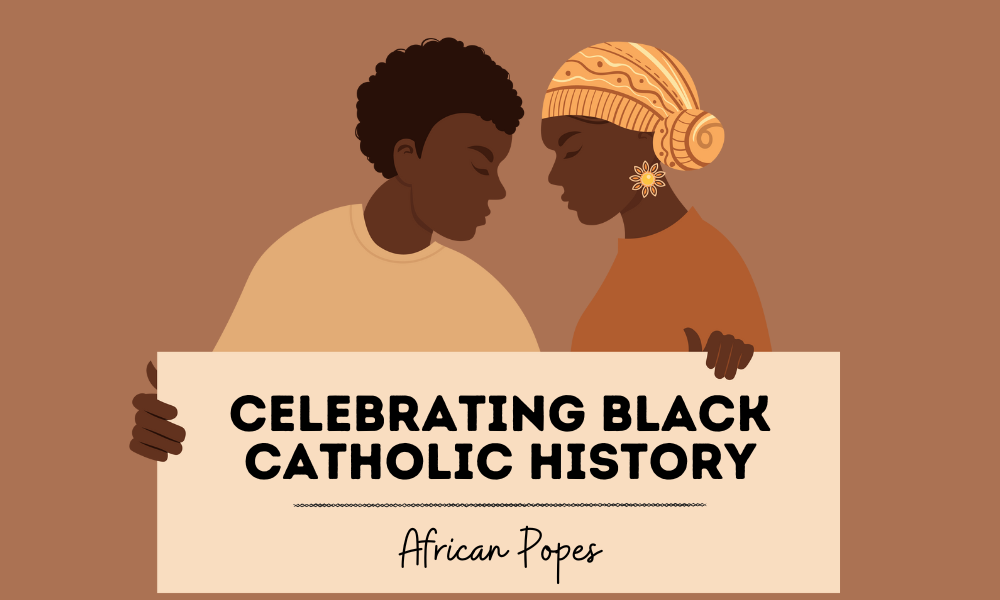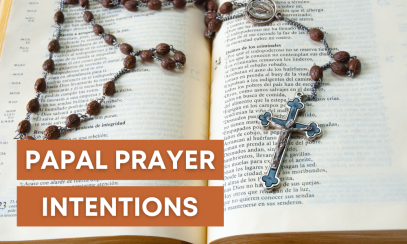
African Popes You May Not Know About
With the Roman Catholic Church based out of the Vatican in Italy, the majority of popes and even saints are Roman or Italian. But did you know that there have been a few African popes? On top of that, they are all saints! Though all three of them reigned early in Church history, and each not for very long, they still made their own indelible marks on Christ’s Church.
With the Roman Catholic Church based out of the Vatican in Italy, the majority of popes and even saints are Roman or Italian. But did you know that there have been a few African popes? On top of that, they are all saints! Though all three of them reigned early in Church history, and each not for very long, they still made their own indelible marks on Christ’s Church.
Pope St. Victor I (198 or 199)
The earliest reigning African pope, Victor I, was a native African whose episcopate lasted for 11 years. Most notable about Pope Victor’s pontificate is the Easter Controversy in which the Church debated the appropriate day to celebrate Easter.
Christians from Asia always celebrated Easter on the fourteenth day of the Jewish month of Nisan, no matter what day of the week it happened to fall on, but this difference led to trouble when they settled in Rome. Pope Victor worked toward determining a universal practice for the Church and, once determined, called upon Asian bishops to accept and adopt celebrating Easter on Sunday. Though this initially caused some controversy, the whole Church gradually accepted this common practice.
In addition to the Easter Controversy, Pope Victor also fought against heresy, most notably Monarchianism (also known as Adoptionism). Theodotus the Tanner taught the false doctrine that Christ was merely a man who, at his baptism, was endowed with supernatural power by the Holy Spirit. Pope Victor acted promptly and excluded Theodotus from the Church, quick to squash this heresy.
Pope St. Miltiades (314)
Pope St. Miltiades was also native to Africa, but his papacy lasted only three or four years. Pope Miltiades was the first pope after Roman emperors signed the edict of toleration that ended Christian persecution, which allowed them to live out their faith and simultaneously regain lost properties and reconstruct their churches. This began the reorganization of ecclesiastical and religious life administration in Rome. Additionally, Constantine gave the Church the Lateran Palace, which became central administration for the Church, as well as the pope’s residence.
Pope St. Gelasius (496)
Gelasius was of African origin, but he was born in Rome. His papacy consisted of a busy four years defending the primacy of Rome and preserving the rights and honor of the Chair of Peter against schismatics. He is quoted to have said:
“There are two powers by which chiefly this world is ruled: the sacred authority of the priesthood and the authority of kings. And of these the authority of the priests is so much the weightier, as they must render before the tribunal of God an account even for the kings of men.”
Though he was a staunch traditionalist, he was pastoral in handling exceptions or modifications that were incorporated into Canon Law, which included his decree concerning the obligation of reception of the Eucharist under both bread and wine. Gelasius also composed many hymns, prefaces, and collects that were arranged in a standard Mass-book that eventually became known as the Missal in the following century.
Candace Bryant-Lester is the assistant editor at FAITH Catholic.



